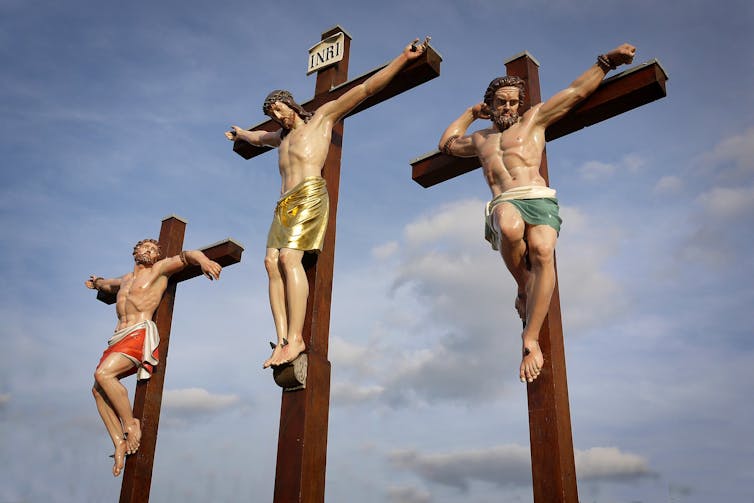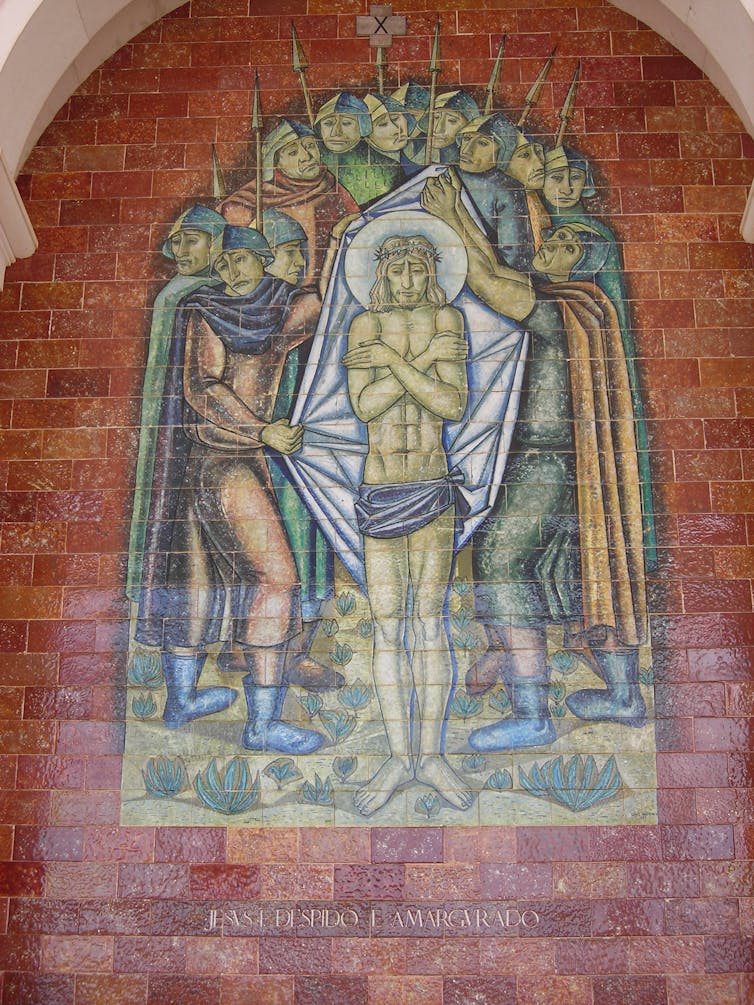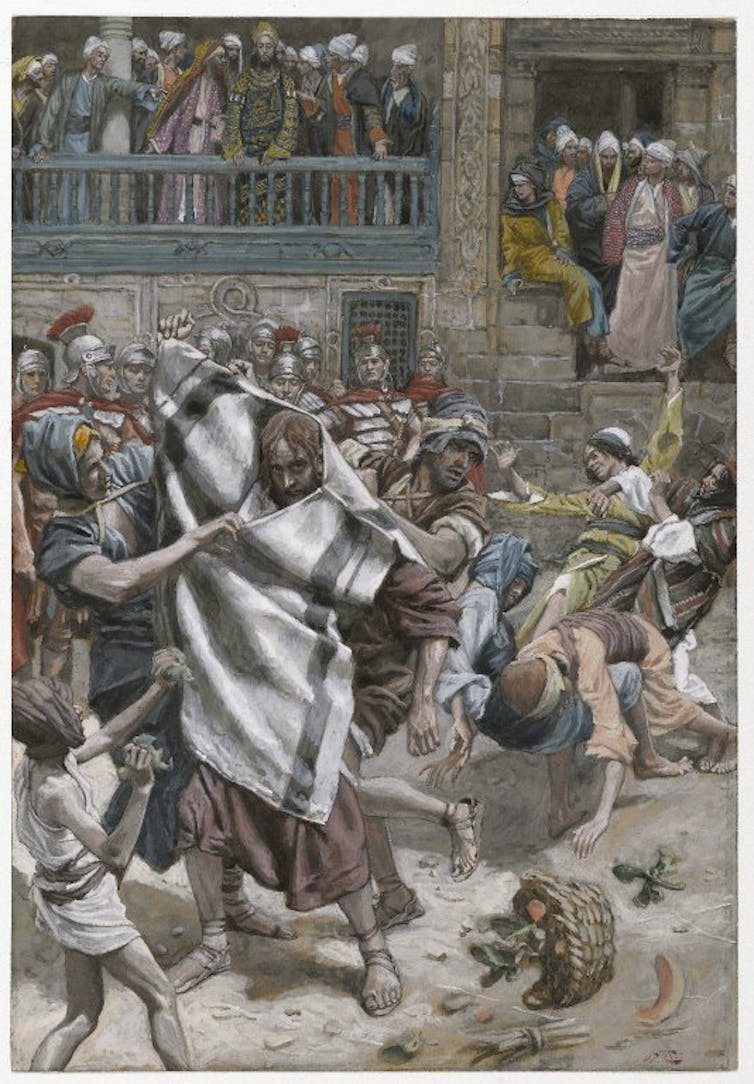Katie Edwards and David Tombs’ recent article in The Conversation (23 March 2018) draws on the earlier article David Tombs, ‘Crucifixion, State Terror, and Sexual Abuse’, Union Seminary Quarterly Review, 53 (Autumn 1999), pp. 89-109, available at Otago University Research Archive.
The article shows how reports of torture in Latin America reveal the role of state terror and prevalence of sexual abuse, and how these might help towards a closer reading of crucifixion.
Earlier this month Professor Linda Woodhead (University of Lancaster) wrote a comment piece for The Telegraph building on the work in The Conversation article. Read Woodhead’s piece here.
On March 31st 2018, CNN included David Tombs’ research in an article on Easter as a ‘#MeToo moment’. Read the CNN piece here.
On 5th April, the original article by Edwards and Tombs was translated into Indonesian.





















